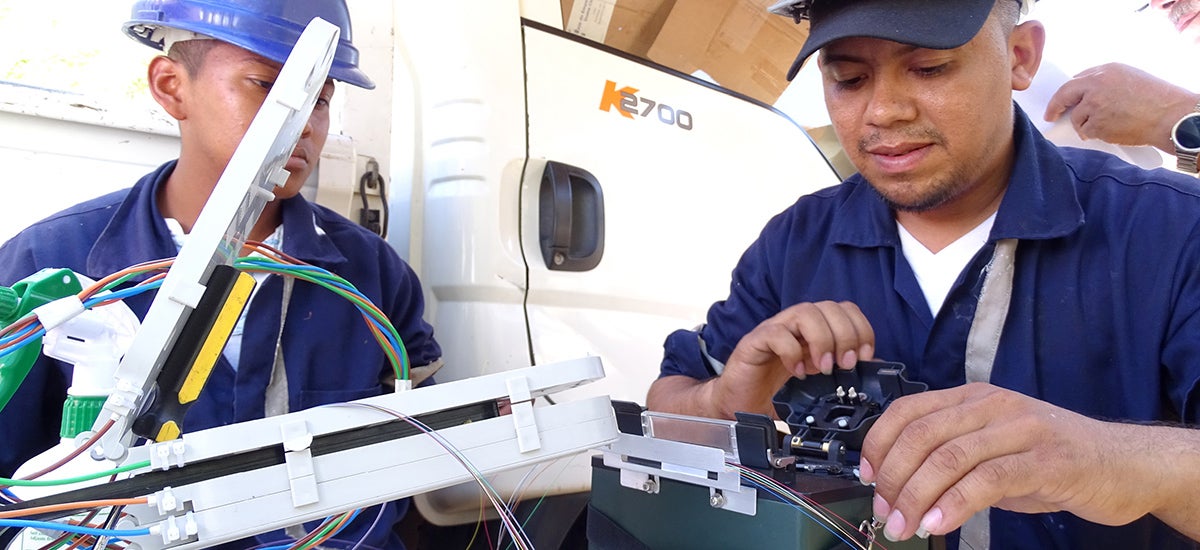The COVID-19 pandemic has inflicted one the largest and most intricate economic disruptions in modern history. Latin America and the Caribbean, with 8% of the world’s population but more than 25% of its deaths, was particularly hard hit, and unfortunately, the war against the virus is far from over.
Even before the health crisis subsides, however, much work needs to be done. While there has been considerable attention to the effects of policy interventions and the behavioral responses on aggregate economic activity and employment, there has been considerably less analysis of the transmission of supply and demand shocks through different economic sectors. At least in the case of Latin America and the Caribbean, evidence is scant concerning the magnitude and nature of sector-level shocks. This gap extends to the prospects for recovery provided by the dynamics at the level of different sectors. These knowledge gaps must be plugged, and action taken if the region is to pull itself out of the deep economic hole in which it finds itself.
Better analysis is needed at the sector level. Not all economic sectors have been hit equally by the pandemic shock, and some sectors, more than others, can help fuel a recovery.
Filling the Knowledge Gaps
A new IDB working paper seeks to fill these knowledge gaps about the sector-level effects of the pandemic. A principal challenge is that the unprecedented global scope of the crisis complicates the task of using benchmarks from previous crises. The global crisis of 2008–09 was characterized by productivity losses in the manufacturing sector due to the interplay of financial and real shocks. The effects of the COVID-19 shock, by contrast, have been stronger in service-related subsectors, where demand and/or supply were constrained by lockdowns and social distancing measures. The losses in these subsectors have had direct impacts on the economy—through their weight in countries’ GDP—and indirect ones through their effect on other sectors.
While the type and size of sector level shocks may be heterogenous, their transmission across sectors can have lasting consequences on productivity. Economies were affected by the pandemic in relation to the magnitude of the shocks they suffered and their sectoral distribution. By the same token, countries intent on recovery must increase investment in sectors with positive spillovers to other sectors, so productivity can increase across all economic sectors. A case in point is infrastructure: investing in infrastructure helps to build up or improve a country’s productive capacity with positive spillovers to other sectors and, therefore, to the entire economy.
Examining Negative Productivity Shocks
The paper exploits a new sector-level productivity dataset for Latin America and the Caribbean (LA-KLEMS) to assess the impacts of negative productivity shocks in the sectors that were most affected by COVID-19 on other economic sectors. It finds that on aggregate, effects in the three most affected sectors—wholesale, retail, and hospitality services; construction; and manufacturing—add up to a 4.9 percent hit to economy-wide labor productivity. This loss in labor productivity is larger than that experienced by other regions, and therefore is in line with results showing that economically Latin America and the Caribbean was the hardest hit by the pandemic.
What type and size of positive shock to other sectors could then possibly offset the negative COVID shock? The paper finds an empirical long-run relationship between productivity in one of the sectors most affected by COVID-19 (the wholesale, retail, and hospitality sector), and productivity in one of the infrastructure-related sectors: transportation and telecommunications, which given the level of data aggregation includes all forms of transportation, digitalization, logistics and storage. That relationship provides an elasticity that can be used to calculate the possible offsetting effects of improving productivity in infrastructure sectors.
The good news is that greater productivity in that sector can indeed provide compensation to others. Specifically, the results show that an improvement in the productivity of the transportation and telecommunications sector would help restore lost productivity in the wholesale, retail, and hospitality sector. Given the range in empirical estimates, the required improvement in the productivity of the transport and telecommunications sector for that to happen varies from 10% to 25%.
The Need to Boost Productivity Growth in Key Sectors
The bad news is that these estimates are large given the region’s track record on productivity growth in infrastructure-related sectors. For example, the historical rate of productivity improvement in the transportation and telecommunications sector in Latin America and the Caribbean is 2.9%. At that rate, the required productivity gain would take years. The region must take action to address this slow productivity growth in infrastructure-related sectors. It must exploit the sector’s compensation potential. This is no easy task, but it is feasible. It can be done through policies that improve the regulatory framework for infrastructure services, a point stressed in the 2020 edition of the Development in the Americas series (DIA): From Structures to Services: The Path to Better Infrastructure in Latin America and the Caribbean.
Vaccinations for COVID-19 mean that the health crisis will not last forever. But even when the health crisis subsides, there may well be a long road to travel economically. The battle for economic recovery through effective exploitation of sector-level dynamics must begin in earnest now. There is no time to waste!


Leave a Reply